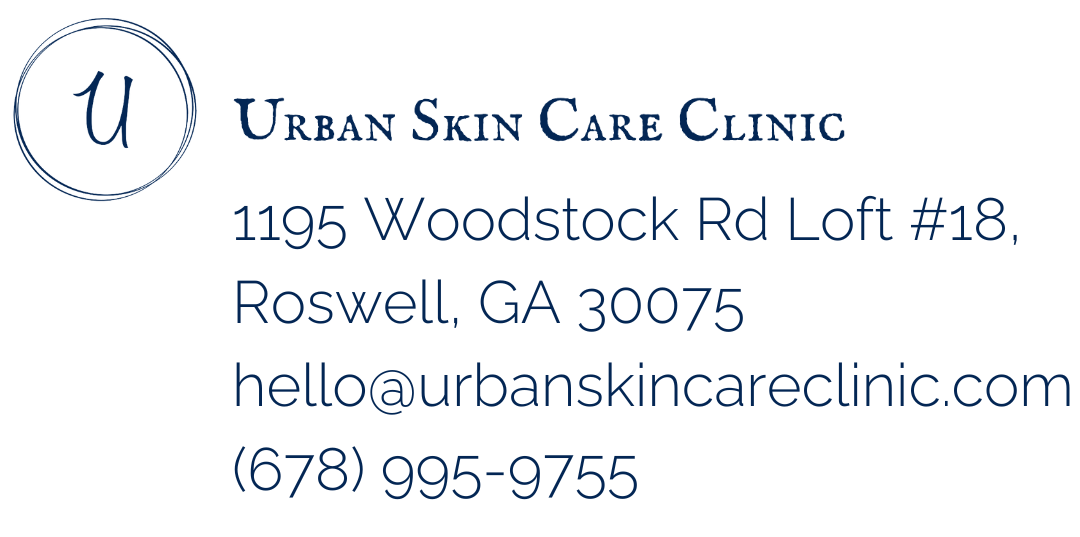Rosacea: What you need to know
What causes skin redness?
Redness is caused by inflammation and is often connected to sensitivity exposure to outdoor elements, medication, or rosacea.
If skin redness appears suddenly, continues to spread, and does not fade or is extremely painful, the most important thing to do is seek medical advice. It’s possible this could be a sign of a more serious condition, an infection, or an allergic reaction, and it's crucial to rule out these possibilities before treating the skin.
Once medical conditions are excluded, then you can book a consultation with an esthetician to develop the best treatment plan to keep your skin nice and healthy and calm the redness.
What is the difference between sensitive versus sensitized skin?
Sensitive skin is a common skin type that is different from sensitized skin.
Sensitized skin is a temporary condition. Sensitive skin types are easily reactive to stimuli that often don't bother other skin types. This can include fragrance, physical exfoliation, certain acids, and heat. These stimulations can trigger inflammation and irritation in sensitive skin types leading to a blotchy complexion, rashes, or bumps.
On the other hand, a sensitized skin type is when the skin's protective barrier or its outermost layer has been weakened over time.
Some factors that contribute to sensitized skin are stress, pollution—and the most common one that I see—excessive use of active ingredients in skincare products. This usually happens when people are self-recommending a routine.
The outdoor environment affects our skin as well. If your skin turns red while you're enjoying the outdoors, you're likely to lay the blame on sunburn. However, the sun isn't the only element that can cause your skin to turn red. Exposure to other environmental factors like cold temperatures, strong winds, heavy rain, pollution, and allergens (pollen or grass) can also leave your skin feeling red, itchy, and raw.
If you have a sensitive or dry skin type in the first place, this exposure will leave your skin even more inflamed and out of balance.
What is rosacea?
Rosacea is the most common and chronic skin condition associated with redness and it primarily affects the central part of the face. It’s often characterized by flare-ups and remissions. It typically begins anytime after age 30 as a flushing or redness on the cheeks, nose, chin, or forehead that may come and go.
Over time the redness tends to become more persistent. Invisible blood vessels may appear. Left untreated, bumps and pimples often develop. In severe cases, particularly in men, the nose may grow swollen and bumpy from excess tissue. In many people, the eyes are also affected, feeling irritated and appearing watery or bloodshot.
Although rosacea can affect all segments of the population, individuals with fair skin, who tend to flush or blush easily, are believed to be at the greatest risk. There's also evidence that rosacea may tend to run in families and may be especially prevalent in people of Northern or Eastern European descent.
No one knows what causes rosacea but there are some interesting theories out there. One of them is that in some cases of rosacea, there’s a proliferation of demodex mites, implanting themselves into the wall of the hair follicle and making the skin swollen and red.
Rosacea triggers
The sun, hot baths, spicy food, alcohol, caffeine, stress, cold weather, hot weather, humidity, heated beverages, and saunas.
Here at Urban Skin Care Clinic, we have a system that has been successful in getting some forms of rosacea under control.
How to keep your skin youthful keep the redness and sensitivity under control
Well, definitely by seeking professional help by seeing a dermatologist or an esthetician who specializes in skin conditions and have a proven track record and an effective plan that's worked in the past.
Here's the key distinction between dermatologists and estheticians. Dermatologists are medical doctors who are qualified and trained to focus on and diagnose skin diseases and disorders.
Estheticians are concerned with overall skin health. Sometimes, we can detect if something doesn't look right. That's when we'll advise the person to seek medical advice if there is something going on that is out of our scope of practice. It's kind of like seeing a psychiatrist if you need medication versus seeing a therapist.


